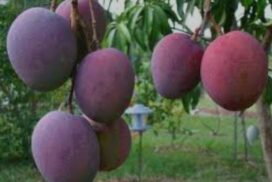A fter a recent trip to Delhi, India, I was pleasantly surprised to feel how wrong I was on the image of India. I was expecting to see elephants, cows, and monkeys walking along the dirty streets of Delhi, which are full of rubbish and deprived of proper sanitary facilities. How wrong was I! Delhi is a modern city now. The streets are reasonably clean. People and drivers are well behaved, despite occasional honking. India has moved on towards the 21st century. It expects to overtake Germany to become 4th largest economy on earth in the near future.
China has already become the second-largest economy in the world and the world’s largest manufacturing base. Its infrastructure is unparalleled in this world. It is fighting for the global south and becoming its de facto leader.
Thailand, a former vessel state of the kingdom of Burma, is the top tourism earner in the region. Its industries, from seafood, rice and fruits (primary) to cars, motorcycles, and equipment manufacturing (secondary) to banking, medical, and tourism services (tertiary) services, are well developed now that it is acting as a hub for these sectors in the region.
In between these three lies a hidden gem. The resources are so infinite in this sparsely populated land that people who do not want to work can walk to the back of the village and eat papayas, mangoes, jackfruits, and bananas growing in the wild and not starved. Its mineral resources are rich enough that it can fund a well-equipped army within separate regions of the country, such as KIA, SAA, WA, or MNDA. Its forests grew precious trees, and the sale of logs could fund the rebel leaders living in luxury, e.g., KNU. More than seventy years of wars would have made many other countries bankrupt. Yet many millionaires still exist within Myanmar. Despite income and asset inequalities, we do not get into starvation like some African countries.
Yet by a twist of fate, Myanmar people are caught between the dictators of the present and the past or the incompetencies and corruption of the leaders abusing the power entrusted to them. Think of General Ne Win and Aung San Suu Kyi.
Leaders who are short on communication skills here and abroad, who are timid at the international level yet loud at oppressing people, who are quaking and shaking to
challenge international reporters and hide behind the curtains to keep on issuing rebuttals,
refusals, denials and statements, are aplenty in Myanmar. This scaredy-cat approach has rippled and trickled down to civil servants, making them
impotent in every sense of the word.
Some spoke of not having to excel or compete internationally. Some give up upon facing the slightest pressure from abroad. Some deter subordinates to shine just to show off their own superfluous power base.
Just like a frog in the well, hanging tight onto their desk of power within their pigmy world may seem like a good scheme of self-preservation. Still,
holistically, the culmination of years of substandard performances and behaviours would only lead to one thing –
Myanmar will remain the poorest in ASEAN for many decades to come.
A Frog in the Well
- March 25, 2024
- 122














